Skin and Hair Conditions
and their treatments
We are dedicated to provide high quality care to our patients by examining skin, hair and mucous membranes. We provide a comprehensive range of services in a tertiary care, academic-based integrated health care system. Many basic dermatologic conditions are treated by the patient's primary care team.
Once the patient has been diagnosed, treated well, our dermatology team works with the patient's primary care team by providing further follow-up care till complete patient’s satisfaction has been achieved.
Skin Care
- Acne Treatment
- Scar Treatment
- Dry Skin
- Pigmentation
- Open Pores
- and so much more.

Acne
Acne can affect people with any skin type – at any age. This condition occurs when hair follicles become clogged with oil and dead skin cells start turning from just a few red spots to severe acne with painful, solid red lumps that may spread on face, neck, chest, back, and shoulders. At our clinic, we offer an extensive range of treatment options to help our patients get their acne under control. Our advice for acne treatments include oral antibiotics and topical creams and gels. For treating more severe acne, we offer mild acidic cleansers, chemical peels, and stronger antibiotics if needed.
Birthmark
Majority of people are aware that birthmarks are harmless. While some birthmarks disappear with age, others can increase in size along with their associated issues over time. This can make people feel self-conscious by affecting their self-esteem. In rare cases, birthmarks need to be removed because they are growing too quickly and are related to further severe medical conditions. Patients who are concerned about their birthmark for cosmetic or medical reasons should have a discussion and evaluation with a professional dermatologist. Our Specialists provides several options for removing or reducing the appearance of birthmarks.
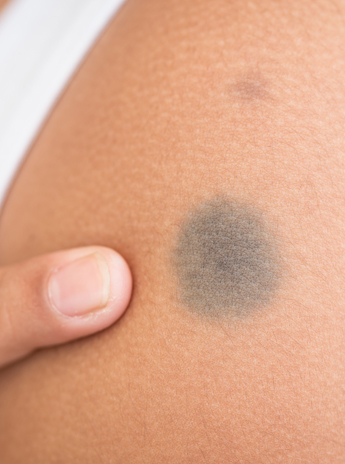
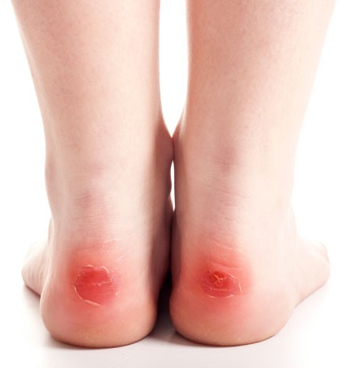
Blisters
If a brand new pair of shoes or a small sized shoes has ever rubbed your skin, you know that blisters can be truly uncomfortable and annoying. Blisters can be caused by allergic reactions, infections, friction or burns.However, a blister can be treated by cleaning and covering it with a bandage. If a blister ruptures, it become infected. If you have a blister that has increased redness, drainage, swelling, or pain – or if you notice red streaks around your blister – you should contact a dermatologist. Our team can provide appropriate treatment to eliminate the infection and to heal your skin.
Cherry Angiomas
Cherry Angiomas are basically harmless red or purple skin growths caused by a clustering of capillaries under the skin. As they are harmless, they usually don’t require treatment, but some patients choose to remove them if they bleed too much aur causes itching. In such cases, they may be indicators of another disorder. If you are concerned about a cherry angioma, our professionals can examine and help in determining best ways to treat it.
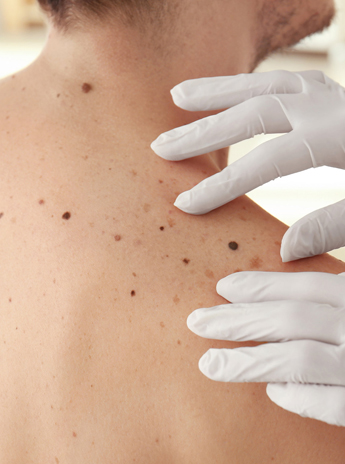
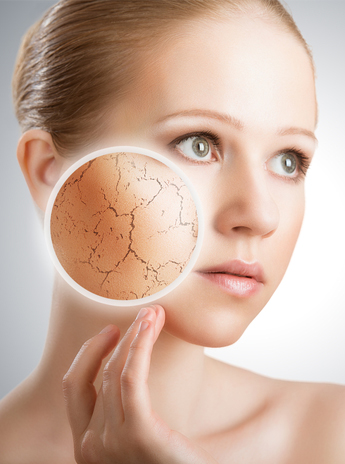
Dry Skin
It’s no secret that our skin changes with time. With age, it loses the ability to produce the oils that keep it moisturized. Dry skin symptoms include rough patches, tightness, itchiness, often on the lower legs, arms, hands and elbows. In many people, dry skin can be treated with some changes in their lifestyle, such as limiting the use of soaps, body sprays, perfumes, taking showers and applying moisturizer regularly. If your dry skin is persistent and severely itchy, it’s important to examine and treat it because it can turn into eczema or dermatitis. At our clinic, we provide a wide range of options to treat your severely dry skin.
Melasma
Melasma is skin condition common to women (especially in pregnancy or the ones who take oral contraceptives). It causes brown tan, or gray discoloration on the cheekbones, forehead, nose or chin. It generally becomes worse when expose to the sunlight. Usually, this discoloration goes away on its own a few months after a woman gives birth or when she changes her hormone intake. We can help speed up the healing process on your melasma skin with topical medication and exfoliating treatments, including microdermabrasion, dermaplaning or chemical peels. Talk with one of our specialists today to determine the best treatment for you.


Psoriasis
Psoriasis is a common skin condition which is much more than a cosmetic problem. It’s a persistent, chronic auto-immune disease that causes cells to build up quickly on the skin, creating thick, discolored (white or red) patches of skin. These patches are called plaques. It can sometimes become extremely itchy and tender. Visible plaques can make patients feel self-conscious and affect quality of life as well. Our team provides a range of treatments for mild to severe psoriasis and recommends treatment based on severity of your skin condition and the area affected.Our specialists use topical steroids, oral medication, ointments or gel to treat more severe psoriasis.
Scars
If you have scars that are noticeable and widespread, large, or raised (such as acne scars), we offer a number of methods to reduce their appearance and visibility.Options ranging from ointments to cosmetic medi-facial, we prescribe topical medications or creams to make them less painful or apparent. If you have a scar thats bothering you for weeks, our team can consult with you and help you determine the best solution for you.
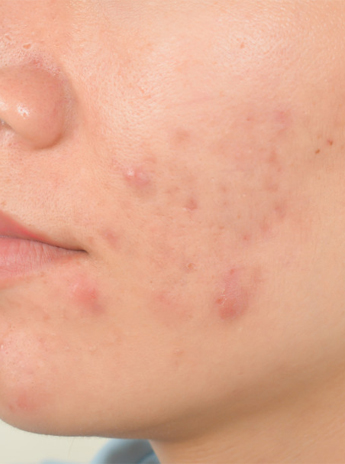
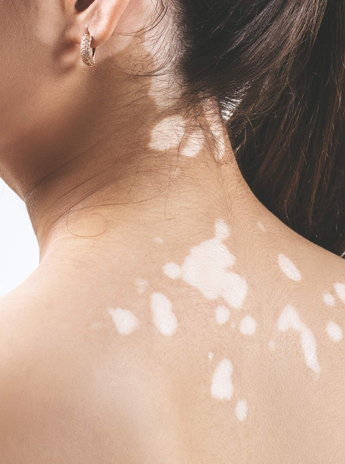
Vitiligo
Vitiligo is also a skin condition that causes the loss of pigmentation (or color) of the skin. Vitiligo can affect any part of the body like skin, hair, or even the pigmentation of your eyes. Although the exact cause of vitiligo is unknown, the condition is not life threatening or contagious. Vitiligo can be treated with the goal to restore the original color that is lost. Topical medications, gels and cream are commonly used options for treatment. Our professionals can recommend the treatment solution that work best for your skin.
Want more information? Contact with us
Sexual Problems and Treatments
Sexual Problems
- Erectile Dysfunction
- Infertility & Reproduction
- Men's Libido
- Nightfall
- Premature Ejaculation
- STDs
Sexual Problems
and their treatments
Sexually transmitted diseases (STDs, venereal diseases) are among the most common infectious diseases in the United States today. STDs are sometimes referred to as sexually transmitted infections, since these conditions involve the transmission of an infectious organism between sex partners
When a male faces problems with getting or continuing to keep an erection during sexual intercourse, he may be suffering from erectile dysfunction (ED). ED may result because of an underlying health issue such as heart disease, thus the problem should be discussed with a doctor as soon as possible.
Erectile Dysfunction (ED)
Erectile dysfunction (ED), also referred to as impotence, is the inability to attain or maintain an erection sufficient for successful sexual activity. Normally, an erection occurs when the arteries carrying blood to the penis widen, allowing more blood to flow in, and the veins carrying blood away from the penis are compressed, restricting blood from flowing out. In other words, more blood flows in and less flows out, making the penis larger and causing an erection. Certain nerves and hormones in the body also play a role in initiating and maintaining an erection. Any abnormality involving the nervous, circulatory or hormonal systems, whether due to medication or disease, may affect the ability to develop and sustain an erection, to ejaculate, and to experience orgasm.


